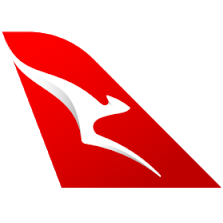
Qantas Airways Ltd
ASX:QAN


| US |

|
Johnson & Johnson
NYSE:JNJ
|
Pharmaceuticals
|
| US |

|
Berkshire Hathaway Inc
NYSE:BRK.A
|
Financial Services
|
| US |

|
Bank of America Corp
NYSE:BAC
|
Banking
|
| US |

|
Mastercard Inc
NYSE:MA
|
Technology
|
| US |

|
UnitedHealth Group Inc
NYSE:UNH
|
Health Care
|
| US |

|
Exxon Mobil Corp
NYSE:XOM
|
Energy
|
| US |

|
Pfizer Inc
NYSE:PFE
|
Pharmaceuticals
|
| US |

|
Palantir Technologies Inc
NYSE:PLTR
|
Technology
|
| US |

|
Nike Inc
NYSE:NKE
|
Textiles, Apparel & Luxury Goods
|
| US |

|
Visa Inc
NYSE:V
|
Technology
|
| CN |

|
Alibaba Group Holding Ltd
NYSE:BABA
|
Retail
|
| US |

|
3M Co
NYSE:MMM
|
Industrial Conglomerates
|
| US |

|
JPMorgan Chase & Co
NYSE:JPM
|
Banking
|
| US |

|
Coca-Cola Co
NYSE:KO
|
Beverages
|
| US |

|
Walmart Inc
NYSE:WMT
|
Retail
|
| US |

|
Verizon Communications Inc
NYSE:VZ
|
Telecommunication
|
Utilize notes to systematically review your investment decisions. By reflecting on past outcomes, you can discern effective strategies and identify those that underperformed. This continuous feedback loop enables you to adapt and refine your approach, optimizing for future success.
Each note serves as a learning point, offering insights into your decision-making processes. Over time, you'll accumulate a personalized database of knowledge, enhancing your ability to make informed decisions quickly and effectively.
With a comprehensive record of your investment history at your fingertips, you can compare current opportunities against past experiences. This not only bolsters your confidence but also ensures that each decision is grounded in a well-documented rationale.
Do you really want to delete this note?
This action cannot be undone.

| 52 Week Range |
5.01
9.22
|
| Price Target |
|
We'll email you a reminder when the closing price reaches AUD.
Choose the stock you wish to monitor with a price alert.

|
Johnson & Johnson
NYSE:JNJ
|
US |

|
Berkshire Hathaway Inc
NYSE:BRK.A
|
US |

|
Bank of America Corp
NYSE:BAC
|
US |

|
Mastercard Inc
NYSE:MA
|
US |

|
UnitedHealth Group Inc
NYSE:UNH
|
US |

|
Exxon Mobil Corp
NYSE:XOM
|
US |

|
Pfizer Inc
NYSE:PFE
|
US |

|
Palantir Technologies Inc
NYSE:PLTR
|
US |

|
Nike Inc
NYSE:NKE
|
US |

|
Visa Inc
NYSE:V
|
US |

|
Alibaba Group Holding Ltd
NYSE:BABA
|
CN |

|
3M Co
NYSE:MMM
|
US |

|
JPMorgan Chase & Co
NYSE:JPM
|
US |

|
Coca-Cola Co
NYSE:KO
|
US |

|
Walmart Inc
NYSE:WMT
|
US |

|
Verizon Communications Inc
NYSE:VZ
|
US |
This alert will be permanently deleted.
 Qantas Airways Ltd
Qantas Airways Ltd
Intrinsic Value
The intrinsic value of one
 QAN
stock under the Base Case scenario is
13.86
AUD.
Compared to the current market price of 9.04 AUD,
Qantas Airways Ltd
is
Undervalued by 35%.
QAN
stock under the Base Case scenario is
13.86
AUD.
Compared to the current market price of 9.04 AUD,
Qantas Airways Ltd
is
Undervalued by 35%.
The Intrinsic Value is calculated as the average of DCF and Relative values:

Valuation History
Qantas Airways Ltd

Uncover deeper insights with the Valuation History. Learn how current stock valuations stack up against historical averages to gauge true investment potential.
Start now and learn if your stock is truly undervalued or overvalued!
Stock is trading at its lowest valuation over the past 5 years.

Valuation History
Historical valuation for  QAN cannot be conducted due to limitations such as insufficient data or other constraints.
QAN cannot be conducted due to limitations such as insufficient data or other constraints.
Fundamental Analysis
Select up to 3 indicators:
Select up to 3 indicators:
Months
Months
Months
Months
Select up to 2 periods:


Revenue & Expenses Breakdown
Qantas Airways Ltd

Balance Sheet Decomposition
Qantas Airways Ltd

| Current Assets | 4B |
| Cash & Short-Term Investments | 2B |
| Receivables | 1.2B |
| Other Current Assets | 845m |
| Non-Current Assets | 16.6B |
| Long-Term Investments | 231m |
| PP&E | 14.9B |
| Intangibles | 638m |
| Other Non-Current Assets | 843m |
| Current Liabilities | 11.7B |
| Accounts Payable | 2.9B |
| Other Current Liabilities | 8.8B |
| Non-Current Liabilities | 8.5B |
| Long-Term Debt | 6B |
| Other Non-Current Liabilities | 2.5B |
Earnings Waterfall
Qantas Airways Ltd

|
Revenue
|
21.9B
AUD
|
|
Cost of Revenue
|
-10.7B
AUD
|
|
Gross Profit
|
11.3B
AUD
|
|
Operating Expenses
|
-9.2B
AUD
|
|
Operating Income
|
2.1B
AUD
|
|
Other Expenses
|
-815m
AUD
|
|
Net Income
|
1.3B
AUD
|
Free Cash Flow Analysis
Qantas Airways Ltd

| AUD | |
| Free Cash Flow | AUD |
QAN Profitability Score
Profitability Due Diligence

Qantas Airways Ltd's profitability score is 67/100. The higher the profitability score, the more profitable the company is.

Score
Qantas Airways Ltd's profitability score is 67/100. The higher the profitability score, the more profitable the company is.
QAN Solvency Score
Solvency Due Diligence

Qantas Airways Ltd's solvency score is 18/100. The higher the solvency score, the more solvent the company is.

Score
Qantas Airways Ltd's solvency score is 18/100. The higher the solvency score, the more solvent the company is.
Wall St
Price Targets
QAN Price Targets Summary
Qantas Airways Ltd

According to Wall Street analysts, the average 1-year price target for
 QAN
is 9.27 AUD
with a low forecast of 8.08 AUD and a high forecast of 11.4 AUD.
QAN
is 9.27 AUD
with a low forecast of 8.08 AUD and a high forecast of 11.4 AUD.
Dividends
Current shareholder yield for  QAN is
.
QAN is
.
Shareholder yield represents the total return a company provides to its shareholders, calculated as the sum of dividend yield, buyback yield, and debt paydown yield. What is shareholder yield?
Ownership
QAN Insider Trading
Buy and sell transactions by insiders

| Period | Sold | Bought | Net |
|---|---|---|---|
| 3 Months |
|
|
|
| 6 Months |
|
|
|
| 9 Months |
|
|
|
| 12 Months |
|
|
|
The intrinsic value of one
 QAN
stock under the Base Case scenario is
13.86
AUD.
QAN
stock under the Base Case scenario is
13.86
AUD.
Compared to the current market price of 9.04 AUD,
 Qantas Airways Ltd
is
Undervalued by 35%.
Qantas Airways Ltd
is
Undervalued by 35%.



































 You don't have any saved screeners yet
You don't have any saved screeners yet